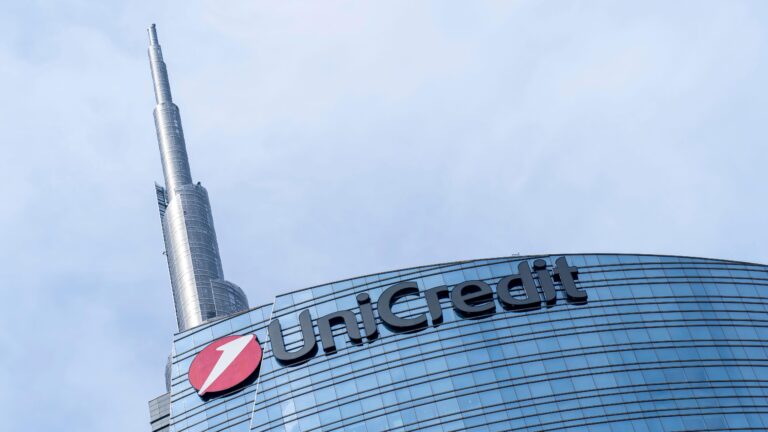UniCredit Faces regulatory Challenges in Banco BPM Acquisition
In a pivotal moment for the European banking landscape, the board of UniCredit is set to meet amid new regulatory challenges imposed by Italy regarding its intended acquisition of Banco BPM. This meeting follows increased scrutiny from Italian regulators, who are expressing concerns over market concentration and its potential effects on competition within the banking sector. market analysts are keenly observing these developments, as the outcomes could significantly influence UniCredit’s strategic approach and alter competitive dynamics within Italy’s financial industry. As uncertainty looms, investor sentiment remains focused on the future implications of this crucial merger.
Strategic Options Under Review by UniCredit Board
The pressure is mounting on UniCredit’s board to reevaluate its strategic plans following unexpected regulatory barriers introduced by the Italian government concerning its acquisition of BPM. These new regulations have raised questions among investors eager to understand how UniCredit will maneuver through this challenging environment. Analysts are closely monitoring as the board considers various strategies that may include continuing negotiations with BPM or potentially divesting certain assets to align with compliance requirements. With an increasingly complex financial landscape in Italy, diversifying their portfolio may also be a strategy for mitigating risks associated with these regulatory changes.
In light of these circumstances, several key strategies are being contemplated by UniCredit:
- Internal Restructuring: Identifying efficiencies that can enhance profitability.
- Collaborative Ventures: Partnering with other financial institutions to bolster market presence.
- Diversification Strategies: Exploring investment opportunities beyond traditional banking sectors to generate additional revenue streams.
The potential impact of these strategies can be assessed through various growth scenarios versus stagnation risks outlined below:
| Strategy | Pursued Growth Potential | Pitfalls | |
|---|---|---|---|
| Internal Restructuring | Potential rise in efficiency and profit margins | Possible short-term disruptions during execution phases | |
| Cohesive Partnerships | A more robust market position achieved through collaboration | Difficulties arising from integration processes | |
| Diversification Strategies | New avenues for revenue generation | Unpredictable conditions in newly targeted sectors |
Reassessing Acquisition Strategy Amidst New Regulations from Italy
The recent introduction of stringent regulations by Italian authorities has prompted a reassessment within UniCredit regarding its acquisition strategy for Banco BPM.These measures aim primarily at ensuring stability across the banking sector but pose significant challenges that could hinder integration efforts and delay anticipated benefits such as economies of scale and operational efficiencies promised by this merger. In light of evolving economic conditions, it is indeed imperative for UniCredit to adapt swiftly while safeguarding shareholder interests.
The board must consider several factors influenced by governmental policies during this reassessment process:
- Tighter regulatory oversight: increased scrutiny necessitates adjustments in compliance protocols.
- Market Sentiment: Stakeholder confidence might waver; thus proactive engagement strategies become essential.
- Operational Modifications: Â Revised timelines for integration along with an emphasis on enhancing core banking operations will be necesary.
Â
Navigating these complexities will be vital as UniCredit strives not only towards successful acquisition but also towards strengthening its position amidst shifting regulatory landscapes.
Expert Advice on Navigating Regulatory Challenges for Future Success
The ongoing challenges posed by recent regulations surrounding Unicredit’s proposed deal with Banco Popolare di Milano (BPM) highlight an urgent need for adaptive approaches according to industry experts. Financial institutions must prioritize agility alongside compliance if they wish to achieve enduring growth amidst changing rules and expectations. Analysts advocate a proactive stance involving:
-
 Â
- Engagement with Regulators: Establishing relationships can yield insights into forthcoming changes facilitating smoother negotiations.
- Advanced Monitoring Systems: investing in technology capable of tracking real-time regulatory shifts helps mitigate non-compliance risks.
- Thorough Internal Audits: Regular assessments identify gaps early allowing preemptive action before issues escalate.
 Â
 Â
Â
Â
 Â
 Â
 Â
 Â
 Â
 Â
 Â
 Â
 Â
Moreover, given heightened scrutiny surrounding this deal, financial advisors recommend exploring option pathways toward growth despite current obstacles faced due diligence shoudl focus not only internally but externally too—considering diversification into emerging markets less impacted by strict regulations could prove beneficial moving forward.
Several critical factors warrant attention when navigating today’s complex environment:
| Factor | Considerations |
|---|
| Market Trends | Stay alert regarding shifts in consumer preferences alongside possible fintech disruptions. |
| Regulatory Changes | Remain informed about local legislative updates along EU-wide modifications. |
| Strategic Alliances | Investigate partnerships capable enhancing resilience while facilitating entry into new markets. |




